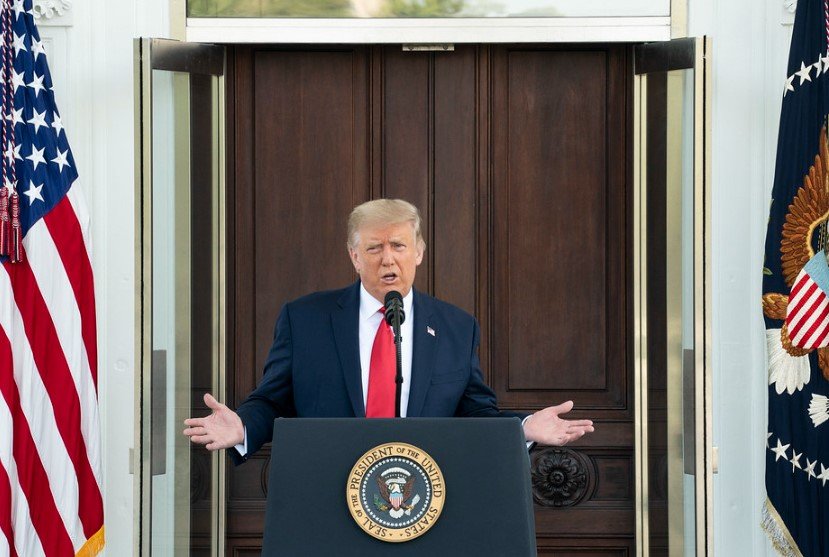United States President Donald Trump has sparked fresh controversy by blaming Ukraine for the ongoing war with Russia, suggesting that Kyiv should have made a deal before the conflict erupted in 2022. His remarks come as the war nears its third anniversary, with no clear resolution in sight.
Trump’s Controversial Statement on Ukraine
Speaking at a press conference at his Florida residence, Trump criticized Ukraine’s handling of the situation, saying, “This war should have never started. They could have made a deal.” His comments immediately triggered backlash, with critics arguing that they ignore Russia’s direct role in launching a full-scale invasion of Ukraine.
The former president has frequently expressed skepticism about continued U.S. support for Ukraine, often questioning the financial and military aid provided to Kyiv. His latest remarks follow reports of a high-level meeting between U.S. and Russian officials, where potential solutions to the war were discussed. Notably, Ukraine was not invited to these discussions, a decision that has drawn significant criticism from Ukrainian officials and allies.
High-Level U.S.-Russia Talks Exclude Kyiv
The recent meeting between Washington and Moscow signals an attempt to push for a diplomatic resolution. Details of the discussions remain unclear, but both sides reportedly agreed to form a specialized team tasked with exploring pathways to peace in Ukraine.

Ukraine’s exclusion from these talks has raised concerns about the country’s agency in negotiating its own future. Ukrainian President Volodymyr Zelensky’s administration has consistently argued that no decision on peace can be made without Kyiv at the table. Yet, with global fatigue over the prolonged conflict and shifting priorities in Washington, the U.S. appears to be testing new diplomatic approaches.
Reaction from Ukraine and the International Community
Unsurprisingly, Trump’s comments have not gone down well in Kyiv. Ukrainian officials pushed back against his suggestion that they were responsible for the war. “Ukraine did not choose this war; Russia did,” a senior adviser to Zelensky stated. “Any so-called deal before 2022 would have meant surrendering our sovereignty.”
Western allies have also reacted sharply to Trump’s remarks. European leaders reaffirmed their commitment to supporting Ukraine, emphasizing that Moscow’s aggression is the root cause of the ongoing crisis. NATO officials stressed that any negotiation process must involve Kyiv and align with Ukraine’s territorial integrity and sovereignty.
Trump’s Position on Ukraine Aid and Foreign Policy
Throughout his political career, Trump has taken an isolationist stance on foreign conflicts, often questioning U.S. involvement in overseas wars. During his presidency, he expressed admiration for Russian President Vladimir Putin, raising concerns among allies about his approach to NATO and global security.
His latest comments are consistent with his previous statements suggesting that he could end the war “within 24 hours” if re-elected. However, critics argue that his approach would likely involve pressuring Ukraine into accepting unfavorable terms, potentially ceding territory to Russia.
Despite Trump’s rhetoric, bipartisan support for Ukraine remains strong in Congress, though recent delays in military aid packages have raised alarms in Kyiv. The Biden administration has maintained its commitment to supporting Ukraine, stressing that the country must have a say in any peace negotiations.
What Comes Next?
With the 2024 U.S. presidential election looming, Trump’s stance on Ukraine will likely be a major foreign policy issue. His comments highlight a growing divide in American politics over continued support for Kyiv, with some Republicans pushing for reduced aid while others emphasize the importance of standing firm against Russian aggression.
Meanwhile, Ukraine continues to fight on multiple fronts, both militarily and diplomatically. The exclusion from U.S.-Russia talks has added another layer of uncertainty to the conflict. For now, Kyiv remains steadfast in its position—peace can only come through negotiations that respect Ukraine’s sovereignty.
